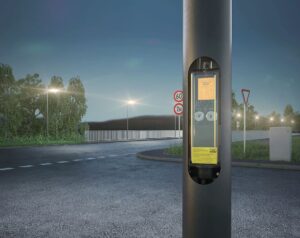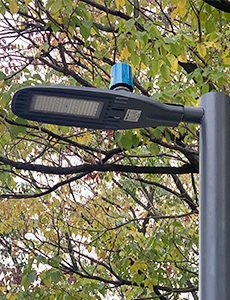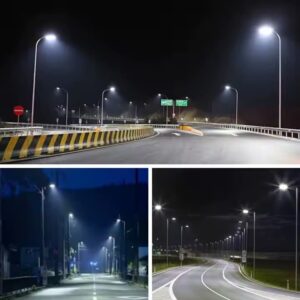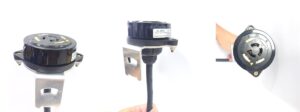How Zhaga D4i Photocells Empower Smart Street Lighting Projects in the U.S.
Introduce
Smart city projects are changing public lighting across the United States. California and Texas lead the way with bold upgrades. Cities want more. Basic dusk-to-dawn photocell switches no longer satisfy. Instead, they want smart lighting control systems. These systems monitor, adapt, and communicate in real time, too.
Energy goals and lower upkeep costs drive this shift. It needs parts that work together. Meet the Zhaga D4i smart photocell. It’s compact yet powerful and built for modern city street lighting networks.
Are you a lighting contractor, city planner, or manufacturer? Learn why Zhaga D4i is becoming the industry standard to stay truly competitive in the U.S. lighting market today.

Why Are Legacy Photocells Struggling to Meet Smart City Demands?
Ever wondered why older dusk to dawn photocell sensors are slowly being replaced? While traditional light photocells do a fine job at turning lights on and off based on daylight levels, they fall short in a smart city environment.
Here’s the problem:
- No communication capabilities– Legacy photocells are “blind” on the network. They can’t share data or receive commands.
- Limited compatibility– Without a standard connector, like Zhaga socket or NEMA receptacle, integration is hard. Modern lighting systems expect it.
- High maintenance costs– No self-diagnostics? Then technicians check each lamp.
- Lack of energy profiling – Cities can’t track energy consumption per street light.
Example: A city running 20,000 street lights might spend thousands annually just on manual inspections. With smart photocells, remote monitoring can reduce truck rolls by over 50%, saving both time and budget.
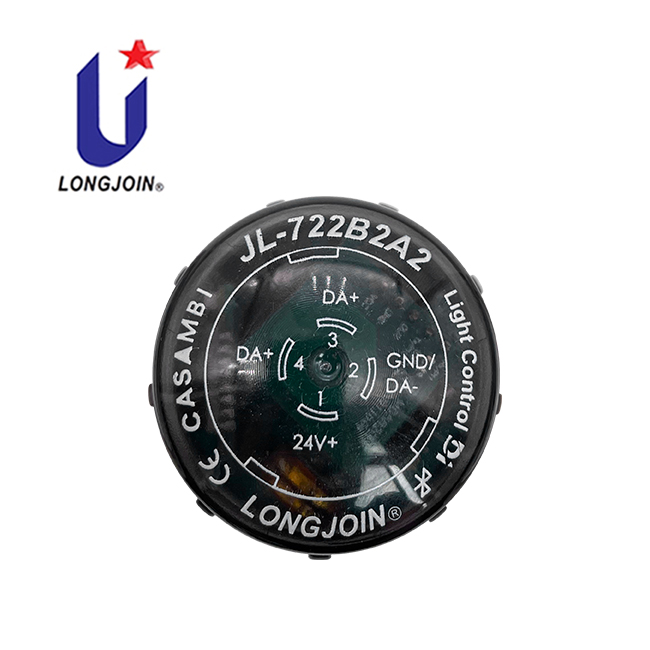
How Does a Zhaga D4i Photocell Solve These Problems?
A Zhaga Book 18 + D4i-certified photocell addresses every limitation of traditional sensors. Devices like Long-join’s Zhaga smart photocell integrate seamlessly with DALI-2 LED drivers, allowing plug-and-play operation in any certified luminaire.
Key Advantages:
- Two-way communicationfor real-time control and diagnostics.
- Interoperabilitythanks to standardized connectors.
- Remote dimmingto save energy during off-peak hours.
- Power and energy metering for accurate billing and sustainability tracking.
Feature | Legacy Photocell | Zhaga D4i Photocell |
On/Off Control | ✔ | ✔ |
Dimming | ❌ | ✔ |
Remote Monitoring | ❌ | ✔ |
Energy Reporting | ❌ | ✔ |
Interoperability | ❌ | ✔ |
Maintenance Alerts | ❌ | ✔ |
This is why cities across the U.S. are moving toward smart photocell lighting sensors—and why manufacturers are adopting the Zhaga standard to future-proof their designs.
What Makes Long-join’s Zhaga D4i Photocells Stand Out?
If you’re evaluating manufacturers photocell suppliers, Shanghai Long-join Electronics has a proven track record of delivering robust, high-performance photocontrol devices for street lighting.
Why Long-join Leads:
- Zhaga Book 18 Certified– Ensures plug-and-play compatibility with all certified LED drivers.
- Multiple Connectivity Options– Zigbee, LoRa, NB-IoT, Wi-Fi to fit different city infrastructures.
- UL773 and ANSI C136.41 Certified– Fully approved for the U.S. market.
- Built to Last – IP65–IP67 weatherproof rating, UV-resistant housing, and surge protection up to 10kA.
Specification | JL-245CZ Model |
Interface | ANSI C136.41 |
Voltage | 120–277V / 347V optional |
Dimming | 0–10V + Midnight Profiles |
Protection | IP65/IP67, Surge 10kA |
LED Decay Compensation | Yes |
Certifications | UL773, CE, ISO9001 |
Housing | Polycarbonate / Aluminum |
OEM/ODM | Available |
With these features, Long-join provides photocell solutions that not only meet today’s needs but also adapt to tomorrow’s smart lighting requirements.
How Was Zhaga D4i Technology Applied in a Texas Smart Lighting Project?
In 2024, a Texas municipality set out to modernize 15,000 street lights. Their requirements were clear:
- Remote monitoring capability.
- Energy-saving dimming profiles.
- Compatibility with existing LED fixtures.
Solution: They deployed the JL-245CZ Zhaga smart photocell with LoRa wireless connectivity.
Results After 6 Months:
- 30% energy savingsfrom adaptive dimming.
- 50% fewer maintenance callsthanks to real-time failure alerts.
- Improved asset management with precise energy usage data.
This pilot was successful. It’s already driving growth across Texas and drawing interest from cities in California. That proves smart photocells aren’t a fad—they’re a need.
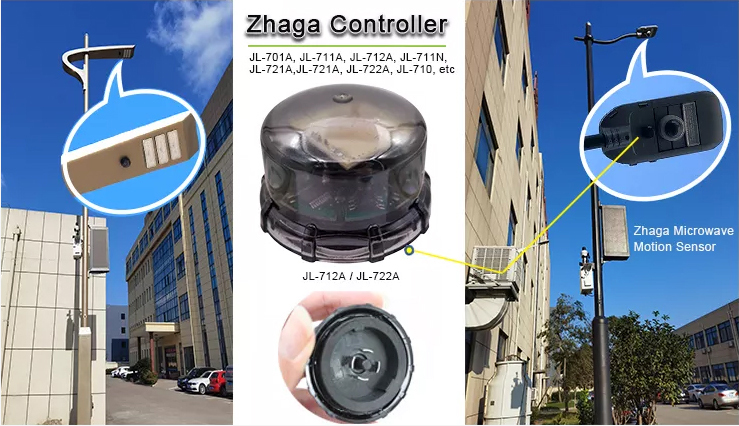
What Technical Details Should You Look for When Choosing a Smart Photocell?
Picking a photocell sensor isn’t about the brand. It’s about matching specs to your project and real-world site needs.
Key Considerations:
- Connector Type:Zhaga or NEMA.
- Communication Protocol:Zigbee, LoRa, NB-IoT, Wi-Fi.
- Voltage Compatibility:120–277V, or extended to 347V.
- Ingress Protection (IP) Rating:IP65–IP67 for outdoor durability.
- Certifications: UL773, ANSI, CE, ISO9001.
Parameter | Why It Matters |
IP Rating | Ensures long-term reliability in harsh weather. |
Surge Protection | Protects against lightning and power surges. |
LED Decay Compensation | Maintains consistent brightness over time. |
OEM/ODM Support | Allows customization for city branding. |
Work with an experienced supplier like Long-join. They cover every detail, from compliance to lasting durability.
How Can U.S. Manufacturers and Contractors Benefit from Zhaga D4i?
Adopting Zhaga D4i photocells isn’t just about meeting the rules. It gives you a real edge in a fast-moving outdoor lighting market today.
The U.S. is moving toward smart, city-ready infrastructure. Manufacturers and contractors now face pressure to deliver solutions that are highly efficient and adaptable as technologies evolve in the future.
Zhaga D4i closes the gap. It pairs a standard mechanical fit with smart communication tools.
Why It Matters Now:
- Lower Total Cost of Ownership– Lower energy bills with smart dimming. Cut maintenance trips with remote checks, and extend fixture life with tuned operation.
- Future-Proof Design– Stay compatible with the newest smart city lighting Avoid costly retrofit work.
- Enhanced Data Insights– Track light output. Spot faults, and tweak schedules in real time for stronger asset control.
If you make lighting fixtures, add Zhaga photocontrol receptacles. They’re now a basic requirement to win U.S. smart-city contracts today. For contractors, plug-and-play smart photocells speed installs. They cut downtime and make upgrades easy every day. That’s a clear win for both productivity and client satisfaction.
Adopt Zhaga D4i now. You won’t just meet rules; you’ll stand out and lead the move to smart, connected lighting across your projects.
Conclusion
From California’s coast to the suburbs of Texas, cities show it works. Smart photocell lighting control isn’t just an upgrade—it’s a game-changer. Zhaga D4i is the top pick for today’s lighting networks. It brings energy savings, real-time data, and smooth compatibility.
Long-join’s JL-245CZ series shows how tough meets smart. It gives cities a reliable path to truly smarter, greener streets.
Ready to see how Zhaga D4i photocells fit your next lighting project? Visit Long-join’s product range. Get detailed specifications and OEM/ODM options, all in one place.
External Links:
●https://en.wikipedia.org/wiki/Narrowband_IoT
●https://en.wikipedia.org/wiki/LoRa
●https://www.digi.com/solutions/by-technology/zigbee-wireless-standard
●https://www.bjb.com/en/light-components/connectors-and-terminal-elements/receptacle-the-basis-for-outdoor-light-sensors/
●https://en.wikipedia.org/wiki/NEMA_connector

